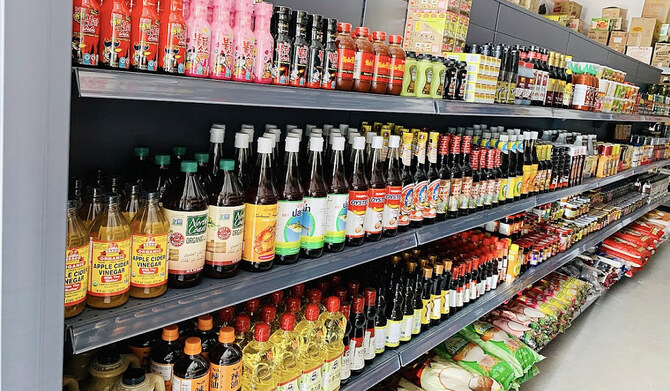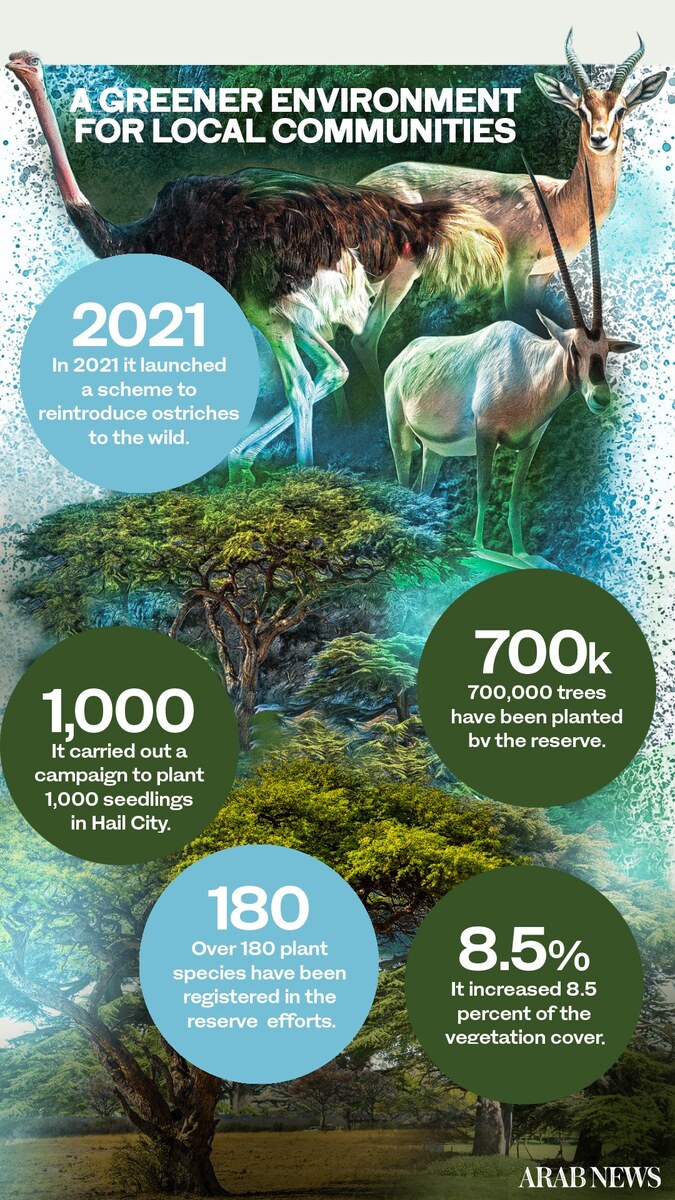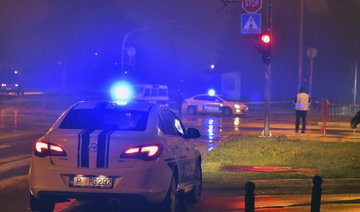SINGAPORE: Saudi efforts to develop healthspan science are enabling research and democratizing strategies to keep people healthy, the world’s leading longevity scientists say, as the Kingdom supports disruptive ideas to reverse aspects of aging.
Launched in 2021, as part of the Saudi Vision 2030, the Riyadh-based non-profit Hevolution Foundation provides grants to incentivize independent research and entrepreneurship in longevity.
Overseen by Crown Prince Mohammed bin Salman, Hevolution pledges investment of $1 billion a year into efforts to understand the processes of aging and to find and render accessible ways to increase the number of years people live in good health.
“The goal is to really extend the healthy years of life. It’s to push our healthy longevity much further, which is something that will benefit every country and every person on Earth,” said Dr. Brian Kennedy, distinguished professor of biochemistry and physiology at the Yong Loo Lin School of Medicine of the National University of Singapore.
“I think it’s a really noble initiative to try to bring healthcare technology that’s just emerging to the forefront as quickly as possible.”
Kennedy, who focuses on understanding the biology of aging and translating research discoveries into addressing and preventing diseases associated with aging, spoke to Arab News on the sidelines of the Advanced Tomorrow 2023 Singapore Summit, which was hosted by the NUS this week.
A member of Hevolution’s scientific advisory board, he said that the foundation supports both academic initiatives and private sector development, as aging research has been greatly underfunded globally.
“They’re going to fund projects around the world, not just in Saudi or the US, but everywhere,” Kennedy said. “They’re enabling research to democratize strategies that keep people healthy longer.”
The efforts also have the potential to redefine the current approach to healthcare, which is waiting until people become ill and only then treating them.
“It doesn’t work because once people get sick, they’ve lost equilibrium. The homeostatic process is to keep them healthy throughout their life … They almost never recover fully to the healthy state (they were in) before they got sick,” Kennedy said.
“Everybody should be treated when they get sick, but we should be putting an equal amount of effort (into) trying to keep them healthy because that’s what you really want. You don’t want to get treated effectively for Alzheimer’s; you don’t want to get the Alzheimer’s. It’s the early stuff that’s going to keep you from getting sick.”
In many cases, age-associated illness such as cardiovascular diseases, cancer, or dementia is not only treatable but also preventable, saving society and individuals from unnecessary financial and emotional burden.
For Prof. Luigi Fontana from the Faculty of Medicine and Health at the University of Sydney, who focuses on preventative medicine and the role of nutrition and physical exercise in slowing age-associated chronic disease, the current medical system “is not healthcare but ‘sickcare,’” as it is designed to treat disease instead of preventing it.
“Most people spend their last 20 years in bad shape, taking multiple medications, in hospital, with cancer, stroke, dementia … It’s terrible because it’s a huge cost on society and also on a personal level, family level,” he told Arab News, adding that no country will be able to afford it in the next two decades.
“The new line of research around the biology of aging is that many of the common chronic diseases that we see now in hospitals are preventable. The World Health Organization claims that at least 80 percent of cardiovascular disease is preventable. Data from my lab suggests it’s much higher than that.”
Research into longevity promises not only ways to allow people to have a better quality of life as they age but also to reduce healthcare costs.
“There are certain pathways, aging pathways, that are controlling the accumulation of metabolic molecular damage leading to multiple diseases. By blocking or inhibiting these pathways, you can prevent multiple diseases at once, so that people would be living healthier. And, typically, when you increase the healthspan, you also increase the lifespan,” Fontana said.
“It’s backed by a lot of science … Now we have to translate it into humans to develop biomarkers, a range of interventions that are going to keep people healthier for long.”
For him, programs like Hevolution provide the chance to advance research in the field much faster than state institutions would, as “typically, with philanthropy, they like disruptive ideas” and “it’s like angel investment.”
Last week, Hevolution partnered with XPrize Foundation and announced a $101 million prize for the first group of researchers that can reverse aspects of aging by 10 years.
“It’s a great idea,” said Noah Molinski, head of research at Von Ardenne Institute of Applied Medical Research in Dresden, Germany.
“The big problem is how we can bring our innovation to the real world. Researchers have a lot of ideas, but without money, they cannot bring a real impact.”
Hevolution’s $1 billion a year investment into longevity research and startups is the highest such pledge globally.
“It aligns a lot with the Saudi Vision 2030. They recognized earlier than others how important longevity is because people can only work to a certain age and normal medicine helps you to prolong your life, but that doesn’t mean that you will have a higher number of years with a higher quality of life,” Molinski said.
“You have to somehow align this (idea) that people live longer but also that the lives lived longer have to be of higher quality. And that’s the main goal of longevity.”







































